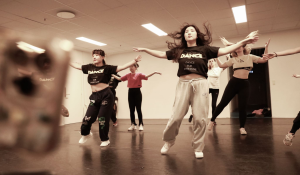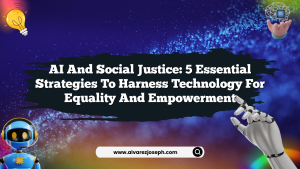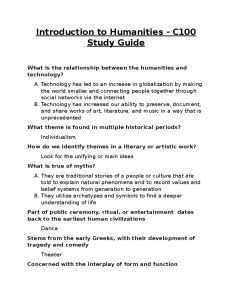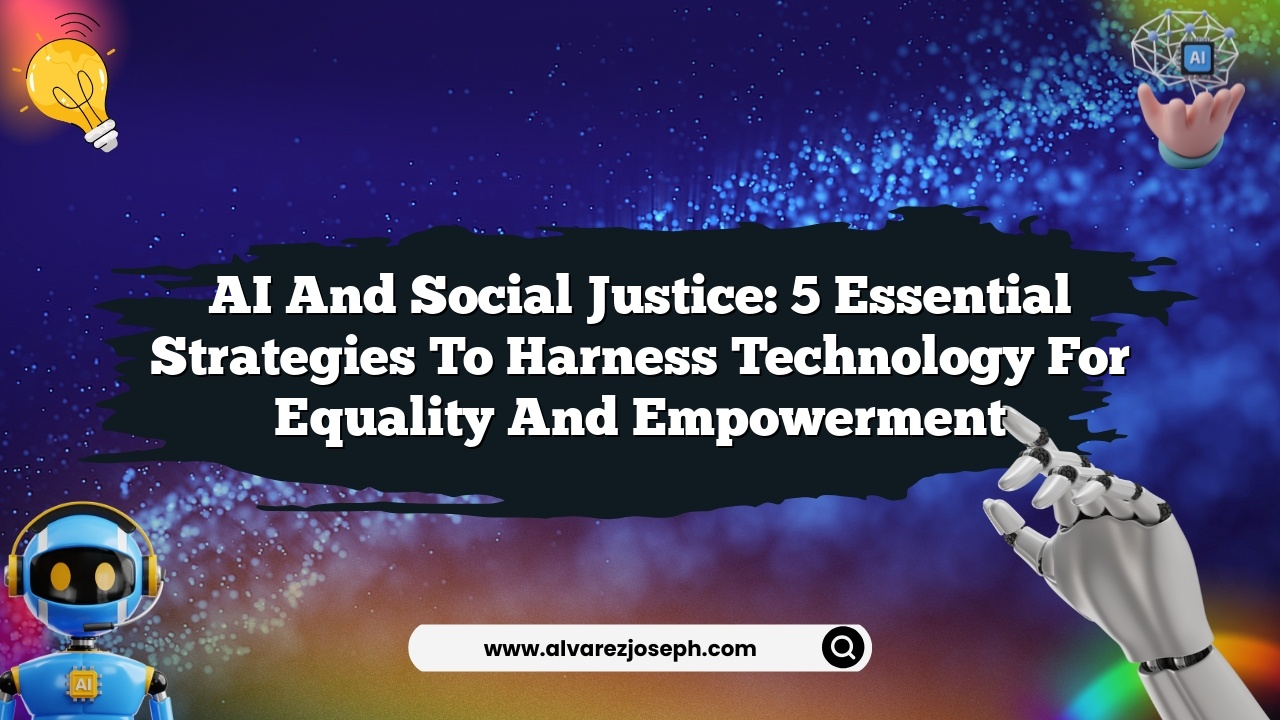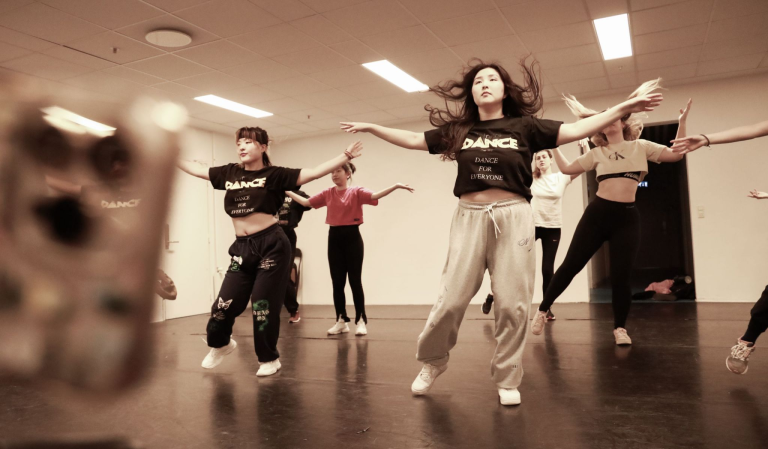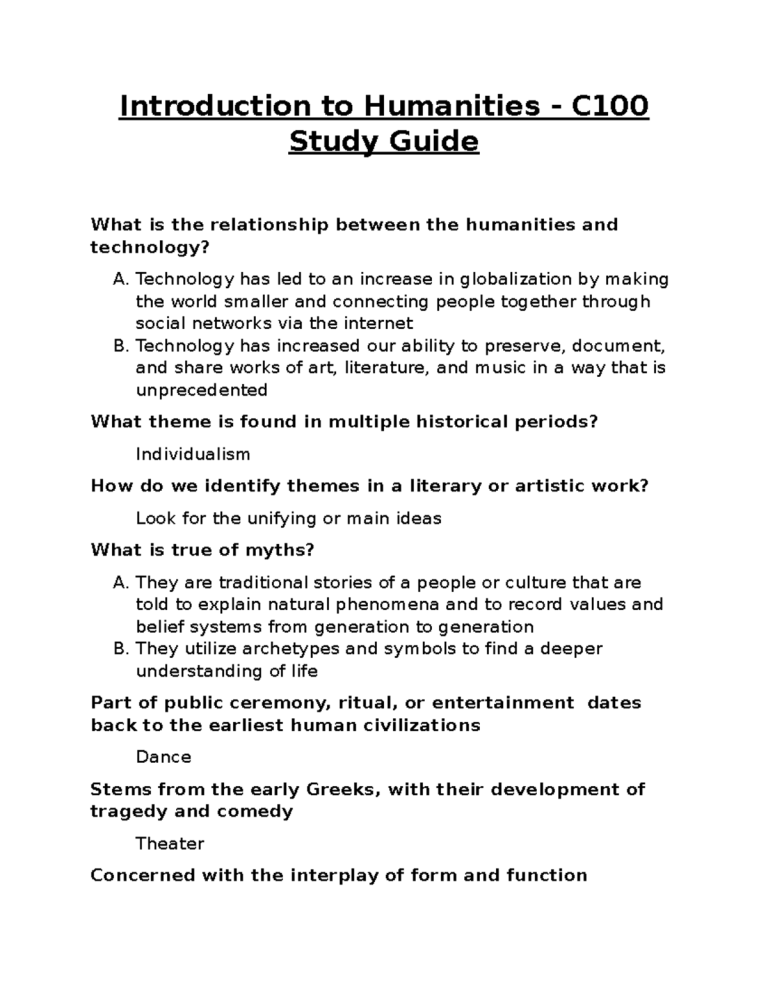AI and social justice are fundamentally intertwined as we navigate the complexities of modern technology and its societal impact. In her enlightening lectures, Ruha Benjamin, a Princeton sociologist, underscores the critical role that ethics must play in the future of technology. She argues that, while some advocate for a world where humanitarian AI can solve problems, the reality often reveals a disparity that favors the few. Benjamin challenges us to recognize how algorithms can perpetuate inequities, particularly against marginalized communities, and how art and culture can reshape narratives around these technologies. As we grapple with AI’s potential, it is crucial to consider not only its efficiencies but also the moral frameworks within which it operates, ensuring that our advancements serve the collective good rather than exacerbate existing injustices.
The intersection of artificial intelligence and social equity raises urgent questions about inclusivity and representation in our technological landscape. The perspectives presented by thinkers like Ruha Benjamin prompt a re-evaluation of how we envision the implications of innovative tech solutions. Instead of solely viewing AI as a means of enhancing efficiency, we must also critically assess its societal ramifications, particularly for vulnerable populations. As we look to the future, embracing a holistic approach that values both technical expertise and cultural insights will be essential. Engaging the arts and humanities in discussions about AI not only enriches our understanding but also inspires creative alternatives to current frameworks that often neglect the voices of those most affected by these advancements.
Reimagining the Future of Technology through Creative Inquiry
In the quest for technological advancement, it is essential to embrace a reimagined vision for the future. Ruha Benjamin emphasizes the importance of diving deep into creative inquiry, particularly within the arts and humanities, to challenge the often dystopian narratives pushed by tech elites. This approach calls for audiences, especially in academic institutions, to foster discussions that transcend mere technical solutions and address social implications, empowering future generations to think critically and artistically about technology’s role in society.
Creative inquiry not only paves the way for innovative technological applications but also ensures that the solutions developed are equitable and humane. By emphasizing the need for interdisciplinary thinking, Benjamin proposes that engaging with diverse perspectives can lead to more holistic solutions that prioritize community welfare over corporate interest. As we envision the future of technology, it becomes crucial to consider artistic expressions and cultural narratives that reflect collective hopes and fears, ensuring that technological progress does not come at the expense of justice.
AI and Social Justice: Confronting the Dystopian Narrative
Many discussions surrounding AI often gloss over their inherent flaws, leading to a distorted view of progress. Benjamin’s assertion that AI technologies can perpetuate oppression highlights the critical need for integrating social justice perspectives into AI development. By questioning the moral authority of tech elites who advocate for advanced AI solutions, we uncover how AI can sometimes echo the same injustices seen in historical eugenics movements, making a case for why we need inclusive conversations that prioritize marginalized voices.
As AI continues to penetrate various aspects of daily life, the intersection of technology and social justice must remain at the forefront. Benjamin’s thoughts provoke us to critically evaluate who benefits from AI advancements and who gets left behind. It is crucial that advocates for AI take a more humanitarian approach, ensuring that innovations are inclusive and serve broader societal needs. By applying a social justice lens, we can retransform technologies like facial recognition and automated healthcare systems to address biases and ultimately create fairer outputs.
The Role of Humanities in Shaping Human-Centric Technology
Benjamin’s call for a deeper understanding of humanities within technological discourses underscores the vital role that culture and the arts play in shaping human-centric technologies. By bridging the gap between technical expertise and societal implications, we can cultivate a more compassionate approach to innovation. Humanities facilitate a rich exploration of moral and ethical considerations, enhancing our understanding of the human experience that numbers and algorithms alone cannot encompass.
Integrating arts and culture into technology development can lead to more thoughtful and inclusive designs. When artists, sociologists, and technologists collaborate, they can create solutions that resonate on a human level. This intersection of disciplines invites diverse narratives and experiences to influence technological progress, promoting a landscape where technology is not merely a tool but a powerful element for societal good.
Challenging Dystopian Visions of the Future
Dystopian narratives often dominate popular discourse surrounding technology, fostering a culture of fear and mistrust. Ruha Benjamin challenges these narratives by proposing the idea that the future need not be shaped solely by the intentions of tech billionaires with apocalyptic visions. Instead, she urges us to imagine alternative futures rooted in social justice, humanitarian efforts, and collective well-being. This perspective invites everyone, not just a privileged few, to actively participate in shaping the technological landscape.
To challenge dystopian visions, we must harness our capacity for imagination and creativity. Benjamin’s invitation to envision a world without borders or surveillance encourages artists, thinkers, and activists to articulate a brighter future. By offering alternative narratives that emphasize community, connection, and fairness, we can collectively craft a technological future that truly serves humanity’s best interests, prioritizing empathy over efficiency.
The Dangers of Altruism in Tech Narratives
Benjamin underscores how many technological advancements are often framed as altruistic when, in reality, they may serve corporate interests. This hypocrisy is detrimental, particularly to vulnerable populations who remain susceptible to the biases embedded within AI systems. She emphasizes that we must scrutinize these altruistic claims and ask critically who benefits from technological advancements and at what cost to society.
In dissecting the allure of ‘efficient’ technologies that promise progress, we must acknowledge their potential to reinforce systemic injustices. By exposing the underlying motivations of tech leaders, Benjamin advocates for a more transparent dialogue surrounding AI and its implications. This invites a collective responsibility to demand that AI development aligns more closely with societal needs and ethical practices, ensuring that technology promotes rather than hinders social justice.
Education’s Role in Creating Future Innovators
Benjamin advocates for educational reform that deeply integrates the arts and humanities into the curriculum, enriching the learning experience for students across disciplines. By fostering creativity, critical thinking, and ethical considerations, such educational frameworks can better prepare future innovators to tackle the complex social challenges posed by emerging technologies. Education should not merely focus on technical skills, but also on nurturing the imagination that will drive humanitarian AI solutions.
This reimagined educational landscape positions students to engage thoughtfully with technology, equipping them to challenge oppressive systems and envision inclusive futures. By promoting interdisciplinary learning, we can cultivate a generation that sees technology as a means to achieve social good rather than a tool for perpetuating inequality. As we progress in our technological endeavors, education will play a pivotal role in shaping responsible and empathetic innovators.
The Intersection of Technology and Art
Exploring the intersection of technology and art unveils profound opportunities for innovation that reinforce cultural narratives. Ruha Benjamin argues that the arts can serve as a powerful medium for critiquing technological norms and envisioning alternative futures. By incorporating artistic perspectives into tech discussions, we can challenge the status quo, using creativity as a catalyst for change that promotes equity and empathy.
Furthermore, by integrating artistic endeavors into technology development, we can spark meaningful conversations about humanity, ethics, and social impact. The collaboration between artists and technologists encourages the creation of holistic solutions that resonate not only with logic but with human emotion and experience. This approach will guide us toward a technological future that aligns with our shared values, fostering a deeper understanding of what it means to create technology for the public good.
Reimagining Systems for Social Good
Benjamin calls on societies to reimagine systems that currently generate inequity, advocating for solutions that address the root causes of social problems. By using technology as a tool for facilitating change rather than merely a means of maintaining the status quo, we open the door to innovative approaches that prioritize social good. This reimagination of systems requires courage and creativity, urging us to question existing frameworks that perpetuate discrimination.
To reimagine these systems, there has to be an emphasis on collaboration across various fields—sociology, technology, and the arts—ensuring that diverse voices are included in the dialogue. By fostering an inclusive canvas for discussion, we can create systems that not only serve the present needs of society but also anticipate future challenges, ensuring a sustainable and just future for all.
Crafting a Just Technological Framework
For technology to positively impact society, it must be built upon a framework that prioritizes justice and equity. Benjamin emphasizes the necessity of developing guidelines that hold tech companies accountable for the societal implications of their innovations. This means not only advocating for better practices in AI development but also restructuring existing systems that marginalize underserved communities.
Constructing a just technological framework involves stakeholders—from policymakers to community members—unifying to ensure that technological advancements prioritize the collective good. By centering social justice narratives in technological discourse, we cultivate a culture that values human dignity and well-being above profit, creating a framework where technology is accessible and beneficial for all.
Frequently Asked Questions
How does Ruha Benjamin’s work connect AI and social justice?
Ruha Benjamin’s work emphasizes the intersection of AI and social justice by critiquing how AI technologies often perpetuate existing inequalities. As a Princeton sociologist, she highlights that the design and implementation of AI systems must consider social implications, advocating for humanitarian AI that prioritizes marginalized voices instead of reinforcing oppression.
What are some societal impacts of AI technologies as discussed by Ruha Benjamin?
In her lectures, Ruha Benjamin points out that AI technologies, such as facial recognition and automated healthcare triage systems, can lead to harmful outcomes like false arrests and biased treatment access. These examples illustrate how AI, often marketed as progressive, can disproportionately impact marginalized populations, thus necessitating critical dialogue about social justice in AI development.
Why is it important to incorporate arts and culture in discussions about AI and social justice?
Ruha Benjamin argues that integrating arts and culture into discussions about AI and social justice is crucial because it fosters creativity and imagination. This approach encourages us to envision alternatives that challenge the status quo, advocating for a society that values public goods such as accessible housing and transportation rather than solely focusing on technological advancements.
How can we reimagine the future of technology in the context of social justice?
To reimagine the future of technology with a focus on social justice, Ruha Benjamin suggests we question existing paradigms and consider diverse knowledge sources. This includes rejecting the notion of AI as a solely rational solution and instead prioritizing ethical and creative approaches that address historical injustices and promote equity in technological solutions.
What role does humanistic inquiry play in shaping AI for social good?
Humanistic inquiry plays a vital role in shaping AI for social good according to Ruha Benjamin, who asserts that the challenges we face in technology arise from a lack of societal understanding among those developing AI. By emphasizing arts and humanities education, we can cultivate critical perspectives that inform the ethical use of AI, ultimately contributing to more equitable outcomes.
What are the dangers of leaving AI development to tech elites, according to Ruha Benjamin?
Ruha Benjamin warns that leaving AI development to tech elites poses dangers, as these individuals may prioritize profits and personal interests over the collective good. She argues that this disconnection leads to technologies that do not serve marginalized communities effectively, and advocates for inclusive dialogues that consider the needs and voices of all societal members.
In what ways can we dismantle mental barriers to envisioning alternatives in AI and social justice?
To dismantle mental barriers in envisioning alternatives, Ruha Benjamin encourages individuals to challenge limiting beliefs that prioritize realism over imagination. She advocates for a critical but creative approach that fosters innovative thinking around AI and social justice, empowering communities to collectively dream of a future that transcends current systems of oppression.
| Key Points | Details |
|---|---|
| Ruha Benjamin’s Perspective | Encourages imagining a radically different future rather than fearing AI advancements. |
| Critique of Tech Elites | Questions the altruism of tech leaders, emphasizing their self-interest rather than collective good. |
| Issues with AI Applications | Highlights how AI can perpetuate oppression, especially for marginalized groups, referencing biases in facial recognition. |
| Need for Diverse Knowledge | Calls for inclusion of societal understanding in tech solutions, not just technical expertise. |
| Creative Reimagining | Advocates for innovative thinking in addressing social issues, urging a shift from harm reduction to comprehensive reimagining of systems. |
| Focus on Arts and Humanities | Stresses the importance of creativity and inquiry in education to foster better societal engagement and solutions. |
Summary
AI and Social Justice are intertwined themes that Ruha Benjamin passionately addresses, advocating for a future where technology serves everyone, not just the elite. In her Tanner Lectures, she challenges us to question the motives behind AI’s development and implementation, emphasizing the need for diverse perspectives and creativity in shaping a better society. By moving beyond mere adjustments to current systems, we can envision a world that dismantles oppressive structures and fosters true equity. This approach not only illuminates the urgency of incorporating social understanding in technological advancements but also invites a collective reimagining of our future, prioritizing justice and inclusion in the age of AI.
